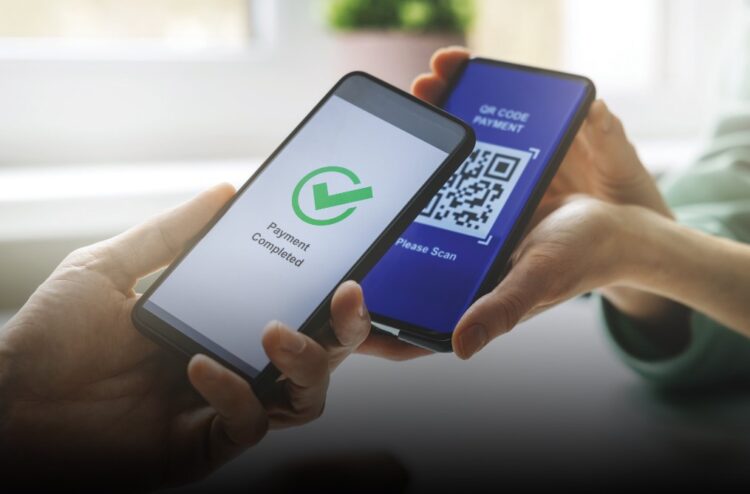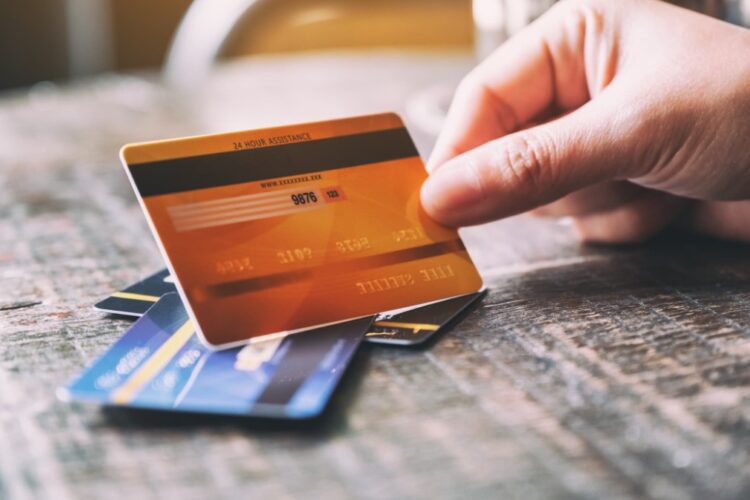Move over cash — digital and contactless payments are becoming the norm.
You probably noticed the change in your own spending. Fewer and fewer in-person stores accept cash, with the most advanced coffee and retail shops relying entirely on digital sales. Meanwhile, you do more of your shopping online than ever before, which requires an online payment method, if not a credit card.
All in all, your credit is getting a workout these days. If you aren’t properly prepared, you can overexert your finances and get into trouble with your budget.
Cash Spending is on the Decline
Cash used to be the only way you could spend your money besides store credit with a sympathetic business owner. But in 2023, few people keep bills and coins in their wallets. Instead, they have credit and debit cards, plus access to a variety of online payment methods and mobile wallets with their smartphones.
Today, debit and credit cards represent the most common ways to pay for things. Just 31% of Canadians use cash for day-to-day purchases, while 9% of Americans rely primarily on cash for purchases. As for the future, these numbers will likely dwindle — a new Moneris study shows that cash will only make up 10% of purchases in 2030.
The surge of digital and contact payments is the result of a perfect storm — one-part COVID, one-part digital acceleration. Four short years ago, people wanted to eliminate shared surfaces in the fight against the spread of COVID. Cash is notoriously dirty, carrying a surprising amount of germs and substances, so it was quick to be on the chopping block.
Meanwhile, financial infrastructure gets better and better each year. Most banks have digitized the lion’s share of their businesses, and the average person carries around a smartphone. It’s simply easier to e-bank, tap your credit card, or scan a QR code to pay for something.
What You Need to Know About Digital Payments

A credit card, a line of credit, and online payment methods are convenient, agile financial tools that can make your life easier in many ways.
- You don’t have to worry about whether you remembered to get cash out.
- Your credit cards can help you reserve car rentals and flights.
- Some of these products may build credit history.
That said, the convenience of credit has a dark side. Research shows credit makes people do two things:
- Spend their money more often.
- Spend more money on each purchase.
Why? It happens because you don’t have a physical frame of reference for the purchases you make with a line of credit or credit card.
Your digital money that exchanges hand invisibly online. You simply tap or swipe your card, and a retailer removes the money from your account. This arrangement puts costs out of mind, even if you spend a lot of money on one item.
Compare this to cash. You witness your bills and coins dwindle with each purchase you make. Seeing your money disappear bill by bill feels final compared to digital payments, so you might think twice about a purchase that takes more of your cash.
Without that visual reference of cash, you can lose track of your spending. You can even fail to see the problem with using your credit. An MIT study shows using credit activates the reward networks in the brain. In other words, you buy an item and experience pleasure at being able to get it right away, when normally you might have to wait to save up for it.
Overspending with credit can be costly beyond the price tags of your purchases. If you can’t pay off your entire bill by the due date, your credit score may also change.
How to Use Credit in a Responsible Way
Knowing the risks of credit is half the battle; understanding how you can use it responsibly is another way you can take advantage of digital and contactless payments without overspending. Because let’s face it — these payment methods are here to stay.
You can learn how to use them wisely by following these tips:
Don’t Spend What You Can’t Pay Off

Use your credit accounts like an extension of your chequing account. You wouldn’t spend more than the cash you have in your bank. Apply this logic to your line of credit and credit card, even if they come with bigger limits than your bank balance.
You should only charge what you can afford to pay off in full by the due date. The only exception is in emergencies when you use these accounts as a safety net. You can put an emergency car repair on an account and pay it off as quickly as possible.
Make Large Payments
When it comes to emergency expenses you can’t pay upfront, you might carry a balance for a couple of months. You can avoid late fines by covering the minimum payment.
The minimum isn’t an effective way to pay off debt, so you’ll keep a balance on this account for longer. Your carried-over amount may also be subject to interest and finance charges that increase what you owe. This is true even if you don’t draw any more money from your available limit.
By paying off your balance as quickly as possible, you can free up your limit faster, and you may reduce what you pay interest.
Pay Your Bills on Time
Always pay your bills on time, even if you can only afford the minimum during a tight month. Prompt payments are the best way to avoid late fines.
Track Your Spending with a Budget

Since it’s easy to spend too much using credit, you might need more oversight with these accounts. Take some time out of each month to look over your statements. Make sure your spending is in line with your short- and long-term financial goals.
Checking over your statements is also a great exercise, even if you use these accounts sparingly. You can look for any inaccuracies or errors in your file that might suggest you have become a victim of fraud.
Bottom Line
While most economists doubt cash will disappear entirely from the economy, you probably will use it less often in the future. As your dependency on contactless and online payment methods increases, make sure you know how to use these accounts wisely. The tips you learned here today can help you avoid overspending.
 Hi Boox Popular Magazine 2024
Hi Boox Popular Magazine 2024



